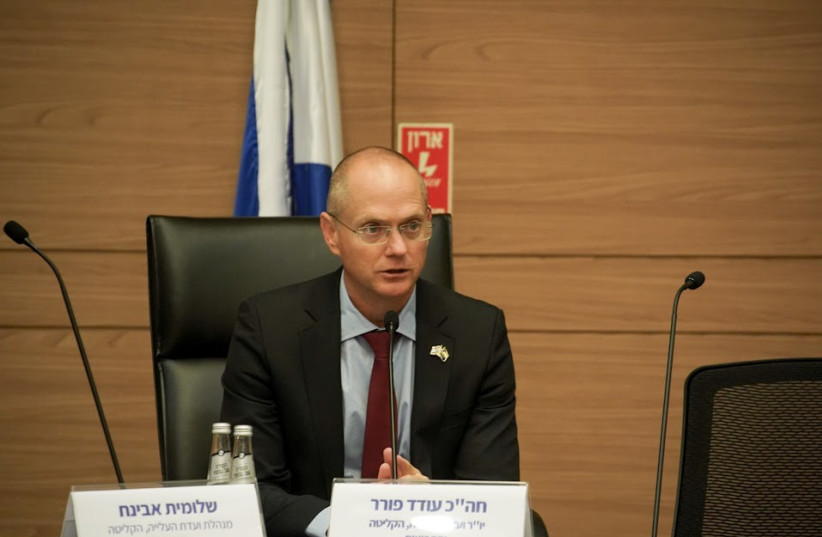In the aftermath of the tragic loss of Sgt. Maro Elem, a Golani combat fighter with the IDF from Ethiopia, a unique immigration challenge has surfaced. Maor's half-brother, Tamrat Elem, now faces a tissue test as a crucial step in his bid for Israeli residency.
Maor, who immigrated from Ethiopia, fell in battle near Kibbutz Nir Oz on October 7, deeply impacting both the IDF and his family. Tamrat, who had been living in Ethiopia, was granted special permission to attend Maor's funeral in Israel. This temporary permission has led to the potential for permanent immigration to Israel, contingent on a tissue test to confirm his familial connection to Maor.
 Learn how to buy your home in Israel with confidence
Learn how to buy your home in Israel with confidenceThe circumstances of Maor's passing were harrowing. Reports indicated that "an RPG missile struck the military jeep he was in, leading to his and two comrades' deaths, Sergeant Omer Wolf and Staff Sergeant Shlomo Dagan." The aftermath of this incident highlighted not only the families' grief but also the bureaucratic challenges faced by those left behind.
The Elem family's socio-economic struggles and difficulties with the Hebrew language have drawn attention to the broader challenges faced by new immigrants in Israel. "The Elem family is in a low socio-economic situation and has great difficulty understanding Hebrew," said Yoel Dagan, Shlomo's father. "I took it upon myself to help the family as much as I could."
The complexity of the Elem case
During a meeting of the Aliyah, Absorption, and Diaspora Knesset Committee, Ronit Elian, head of the Visa Department at the Interior Ministry, acknowledged the complexity of the Elem case. "We examined the file thoroughly and did not find documents that allow immigration to Israel under the Law of Return," Elian stated. "We recommended that the family apply for immigration to Israel on humanitarian grounds." The Justice Ministry is assisting with the tissue testing process, which is pivotal for determining Tamrat's future in Israel.

MK Oded Forer, chair of the Aliyah, Absorption, and Diaspora Committee, emphasized the difficulties many face in regularizing their status in Israel, especially during wartime. "The Interior Ministry needs to try and solve the problems as quickly as possible despite being understaffed due to the war," Forer stated.
This situation is not isolated. Another case discussed at the Committee involved a 60-year-old woman from Moscow, whose immigration process was delayed due to the Russia-Ukraine conflict. "Only after the Committee for Aliyah, Absorption and Diaspora inquired about her case, she received an answer last night that her request was approved," the committee reported.
Attorney Lior Beres, representing the Israeli Association for International Couples, highlighted the lengthy and often problematic status regulation process for new immigrants. "There are tens of thousands of people undergoing a status regulation process, facing many problems along the way and the prolonged process makes it difficult for families," Beres explained.
MK Tsaga Malaku (Likud) criticized the Population and Immigration Authority for its outdated methods and slow response times. "New immigrants wait in line for many months and sometimes even years to get an answer regarding their status in Israel," Malaku observed.
MK Yossi Taieb, chairman of the Education Committee (Shas), pointed out the challenges new immigrants face in understanding the Israeli bureaucratic process. "We need to seriously think about expediting the processes, making them accessible, and establishing a public inquiries department in these cases," Taieb suggested.
MK Evgeny Sova (Yisrael Beiteinu) proposed the idea of a new status for post-war immigrants to alleviate bureaucratic hurdles.
Concluding the discussion, MK Forer called upon the Population and Immigration Authority to provide better support for new immigrants, suggesting multilingual telephone centers and more frequent committee meetings to address humanitarian cases.
 Sign up for our newsletter to learn more
Sign up for our newsletter to learn more 